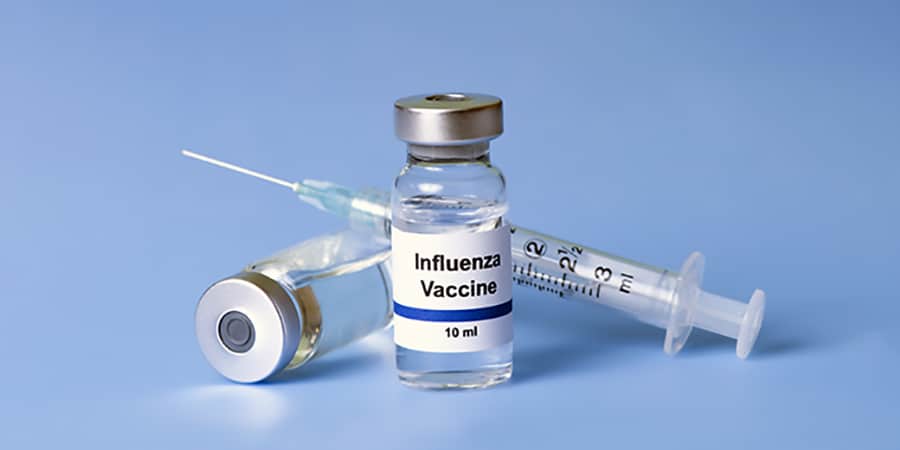By Liora Engel-Smith/VTDigger
As Vermont braces for the Omicron variant of Covid-19, influenza appears to be making a comeback.
Roughly 1 in 10 people tested for respiratory symptoms in Vermont had the flu in mid-December up from about 3 in 100 people the first week of the month, according to the Vermont Dept. of Health.
Vermont had virtually no influenza cases in 2020. Health Commissioner Mark Levine credited that trend to higher-than-average influenza vaccination rates and to coronavirus control measures — including masking and crowd restrictions — that helped keep the flu at bay.
Flu season in Vermont typically runs from October to May, cases peaking in January and February.
The return of influenza is of particular concern this year as the state contends with an unprecedented surge in Covid-19 cases and hospitalizations from the highly contagious Delta variant and much more transmissible Omicron variant.
Much is still unknown about the severity of illness from the new variant, but a rapid rise in cases — and hospitalizations — threaten to overwhelm the state’s health care system. In the United Kingdom and Denmark, where Omicron has taken hold, new Covid-19 cases have been doubling every four days.
In-person holiday gatherings, a big catalyst for coronavirus, also create fertile ground for flu transmission. This year’s influenza vaccine also offers less protection than usual against the dominant flu strain that’s circulating in the U.S. this winter, raising concerns about a Covid-19 and flu “twindemic.”
Though the influenza vaccine may not prevent infection, experts say it reduces the chance of serious illness. Vermont is contending with its largest coronavirus surge to date, averaging just more than 400 new infections per day, and hospitalizations have risen since the beginning of the holiday season.




